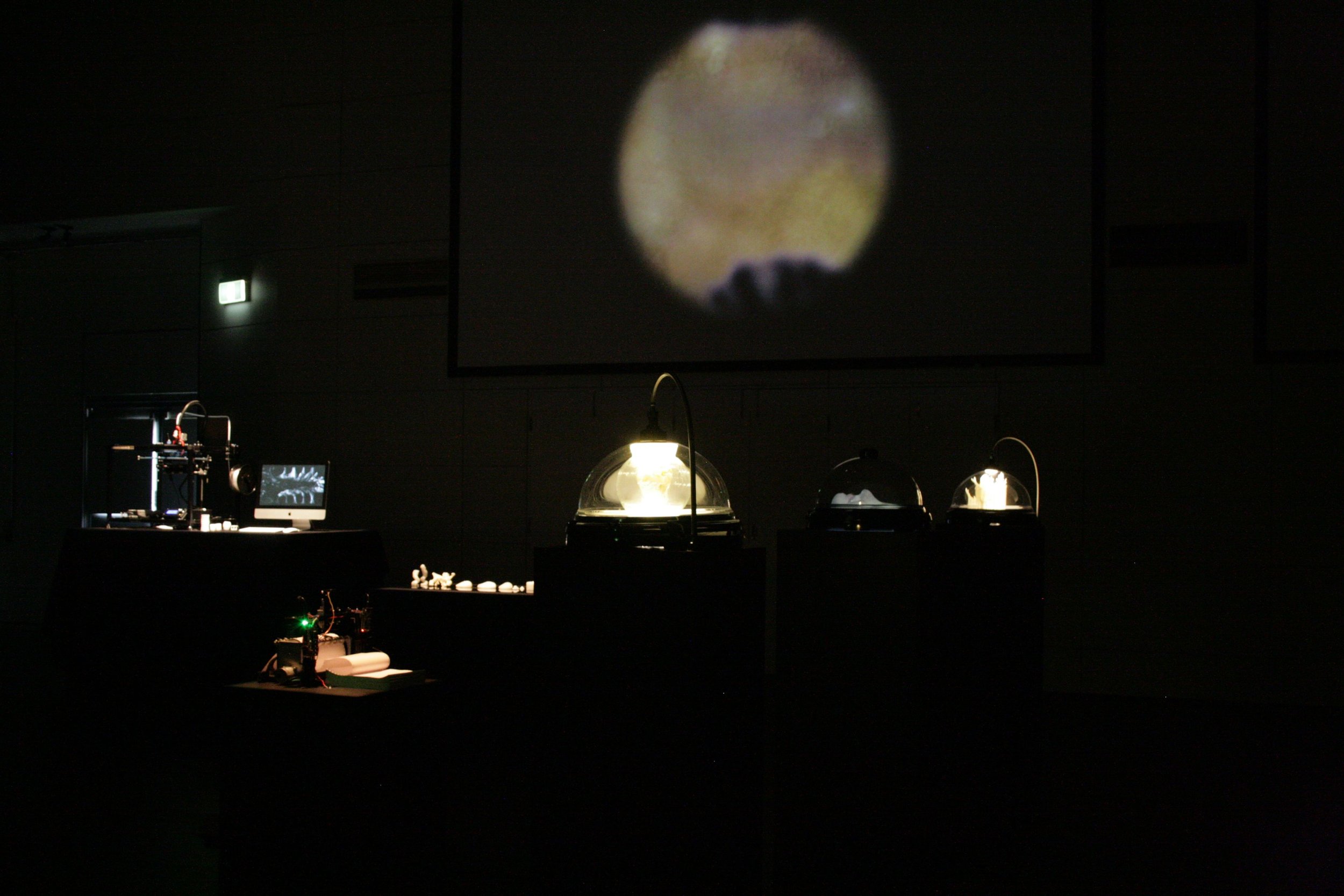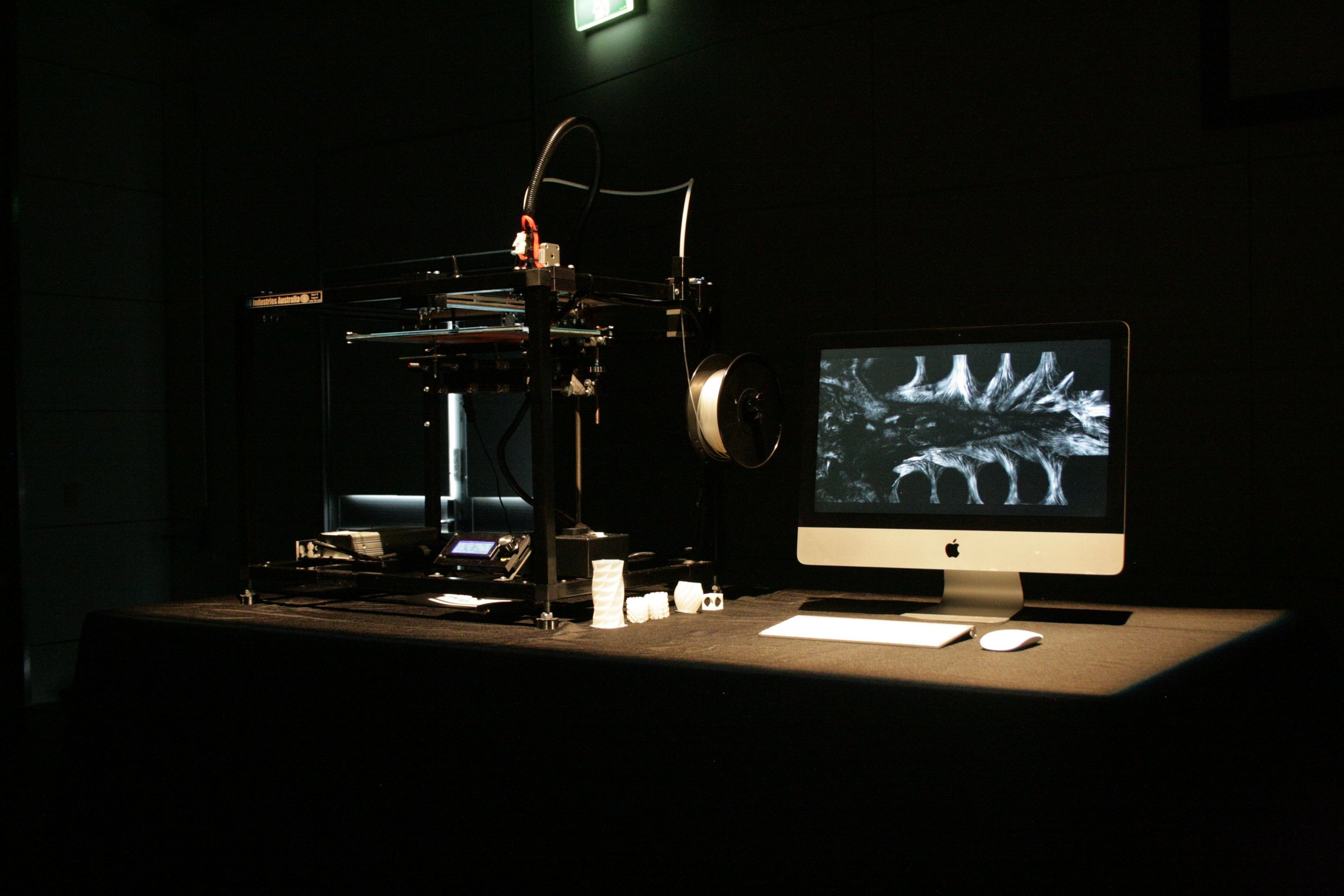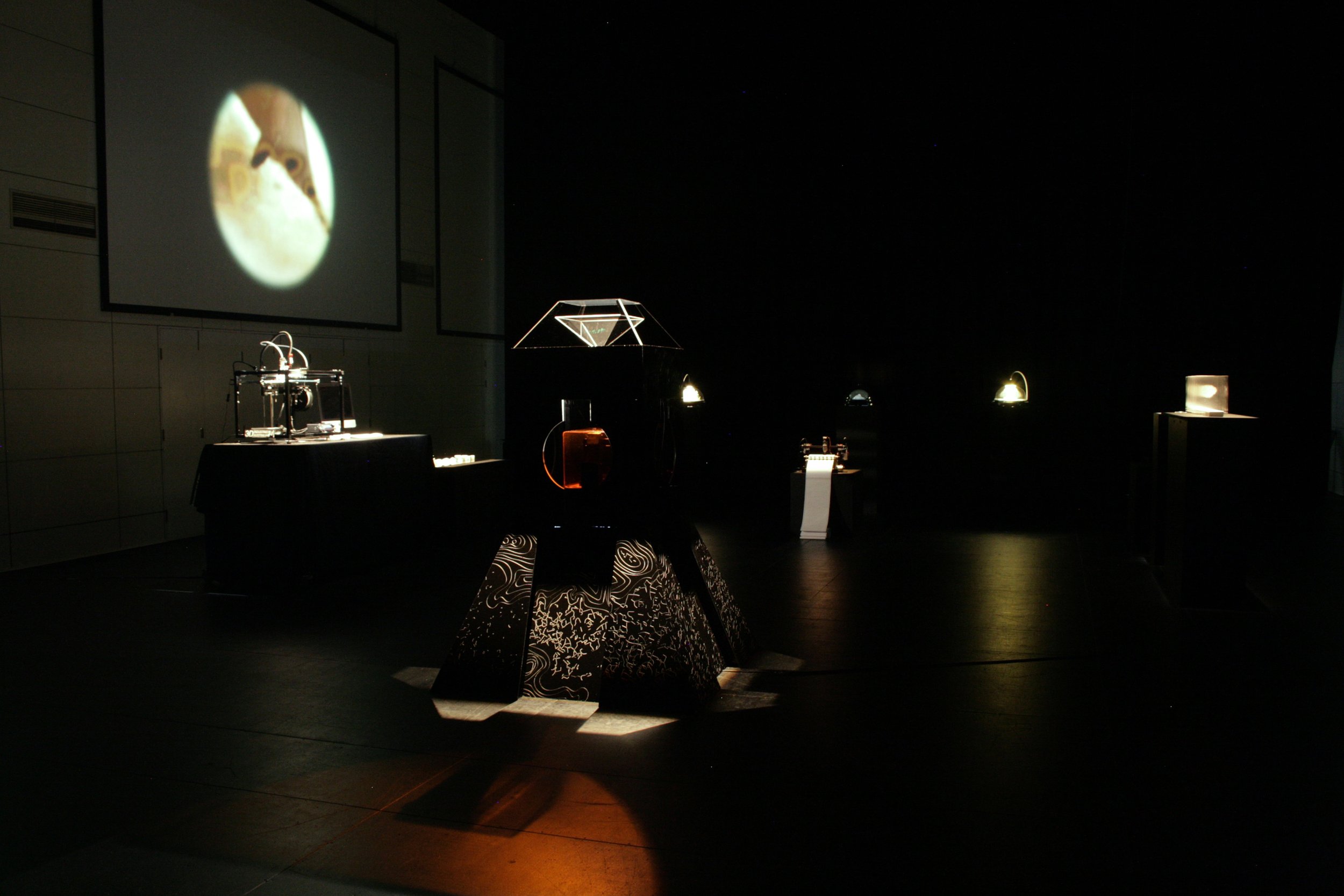Biosynthetic Systems
The BioSynthetic Systems project was developed through a creative partnership between the Centre for Regenerative Medicine, QUT’s Interactive Visual Design discipline, and the Creative Exchange Institute’s Science Art Lab+ at the University of Tasmania. Drawing on the Centre’s expertise in additive bio-manufacturing—using 3D printing technologies to create biological constructs—the project explored the potentials and promises of regenerative medicine.
This collaboration culminated in a large-scale exhibition, Prototypes for Immortality: Towards a Distributed and Evolving Self, held at The Block gallery. Engaging with the concept of immortality through speculative technological intervention, the exhibition incorporated tissue engineering techniques and innovative approaches to additive bio-manufacturing, resulting in artworks that emphasised the transformative capacities of 21st-century biomedical sciences and the agency of living biomaterials.
Presenting a collection of artworks and creative prototypes alongside the technologies developed and applied by the Centre for Regenerative Medicine, the exhibition invited viewers to participate in active dialogue. Participants were encouraged to reflect on the creative applications of the Centre’s research and to consider the possibilities and philosophical implications of living engineered systems and the convergence of artificial life with biotechnology.
The exhibition opening featured a 30-minute floor talk by project collaborators, who provided insights into the development process, including technological, ethical, and logistical challenges, as well as concept and project design. Presented in conjunction with the Critical Connections Symposium, the exhibition also contributed to discussions on interdisciplinary pedagogical strategies, bringing together researchers and secondary teachers across art, design, and science.
PROJECT PARTNERS: Funded by Creative Sparks Grant from the Brisbane City Council, and initiated by Svenja Kratz, BioSynthetic Systems was a collaborative undertaking across the University of Tasmania’s (UTAS) Creative Exchange Institute (CxI) and the Queensland University of Technology’s Interactive Design Discipline and Regenerative Medicine Group at the Institute of Health and Biomedical Innovation (IHBI).
Primary project partners include Professor W. Dietmar Hutmacher, leader of the Regenerative Medicine Group at IHBI, PhD Candidate Felix Wunner and artists Svenja Kratz and Bill Hart. The project development team also included, micro-electronics engineer Michael Maggs and designer Lumen Cloud (Richard Candy and Michelle Xen), with support from members of the Regenerative Medicine Group including, Alexander Moran, Stephanie Piper, Onur Bas, Mohit Chhaya, Jacqui McGovern, Madeline Hintz and Elena Juan Pardo.












